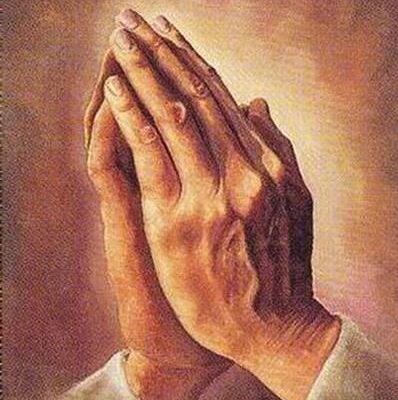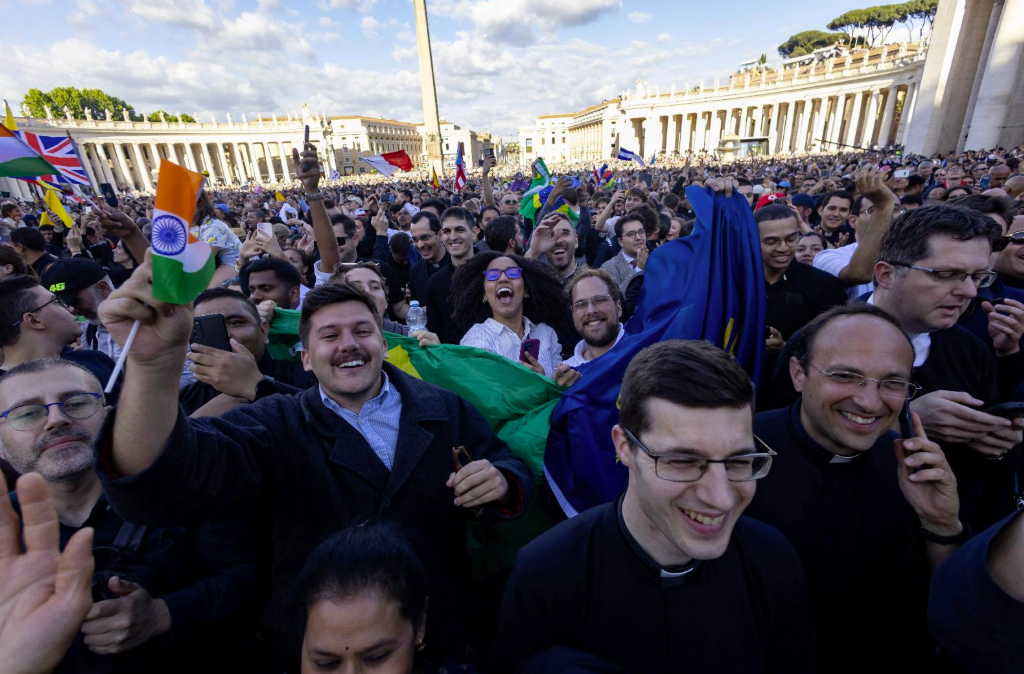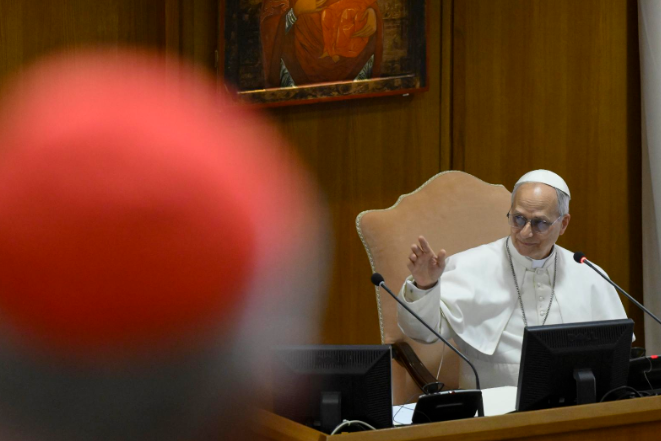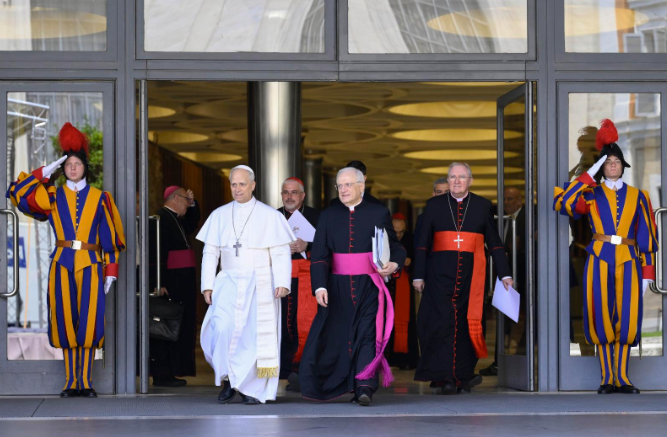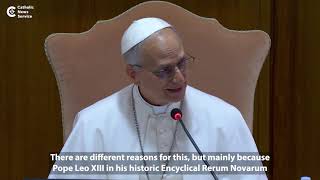VATICAN CITY (CNS) — The Catholic community is alive, beautiful and strong, and it is up to its pastors to protect and nourish the faithful and to help bring God’s hope to the whole world, Pope Leo XIV said.
For that reason, the pope invited the cardinals “to renew together today our complete commitment to the path that the universal church has now followed for decades in the wake of the Second Vatican Council,” and that “Pope Francis masterfully and concretely set it forth in the apostolic exhortation Evangelii Gaudium” (“The Joy of the Gospel”), he said May 10, in his first formal speech to the College of Cardinals.
He also said that he chose his name in homage to Pope Leo XIII, recognizing the need to renew Catholic social teaching to face today’s new industrial revolution and the developments of artificial intelligence “that pose new challenges for the defense of human dignity, justice and labor.”
The pope, who was elected in a conclave of 133 cardinal electors on the fourth ballot May 8, met with members of the college, including non-electors, in the New Synod Hall at the Vatican.
Pope Leo told the cardinals that after his “short talk with some reflections,” which the Vatican press office published, they would have “a sort of dialogue,” which many of them had asked for, “to hear what advice, suggestions, proposals, concrete things, which have already been discussed in the days leading up to the conclave.” Those discussions in the closed-door meeting were not published.
In the text that was released, the pope said the events of the past three weeks, beginning with Pope Francis’ final days, his death and funeral, have allowed them “to see the beauty and feel the strength of this immense community, which with such affection and devotion has greeted and mourned its shepherd, accompanying him with faith and prayer at the time of his final encounter with the Lord.”
“We have seen the true grandeur of the church, which is alive in the rich variety of her members in union with her one head, Christ,” Pope Leo said.
The Catholic Church is “the womb from which we were born and at the same time the flock, the field entrusted to us to protect and cultivate, to nourish with the sacraments of salvation and to make fruitful by our sowing the seed of the Word, so that, steadfast in one accord and enthusiastic in mission, she may press forward, like the Israelites in the desert, in the shadow of the cloud and in the light of God’s fire,” he said.
Because of that, the pope asked the cardinals to renew together their “complete commitment” to the church’s post-Vatican II journey, which was detailed in Pope Francis’ 2013 apostolic exhortation on the proclamation of the Gospel in today’s world.
“I would like to highlight several fundamental points” from the document, he said: “the return to the primacy of Christ in proclamation; the missionary conversion of the entire Christian community; growth in collegiality and synodality; attention to the ‘sensus fidei’ (the people of God’s sense of the faith), especially in its most authentic and inclusive forms, such as popular piety; loving care for the least and the rejected; courageous and trusting dialogue with the contemporary world in its various components and realities.”
“Sensing myself called to continue in this same path, I chose to take the name Leo XIV” for several reasons, he said, but mainly because Pope Leo XIII, “in his historic encyclical ‘Rerum Novarum’ addressed the social question in the context of the first great industrial revolution.”
Today, the church continues to offer “everyone the treasury of her social teaching in response to another industrial revolution and to developments in the field of artificial intelligence that pose new challenges for the defense of human dignity, justice and labor,” he added.
Pope Leo XIV, the first pope from the United States, said that, “beginning with St. Peter and up to myself, his unworthy successor, the pope has been a humble servant of God and of his brothers and sisters, and nothing more than this.”
Many popes, and most recently Pope Francis, demonstrated this with his “complete dedication to service and to sober simplicity of life, his abandonment to God throughout his ministry and his serene trust at the moment of his return to the Father’s house,” he said.
“Let us take up this precious legacy and continue on the journey, inspired by the same hope that is born of faith,” he said, reminding the cardinals that it is “the risen Lord, present among us, who protects and guides the church, and continues to fill her with hope.”
“It is up to us to be docile listeners to his voice and faithful ministers of his plan of salvation, mindful that God loves to communicate himself, not in the roar of thunder and earthquakes, but in the ‘whisper of a gentle breeze’ or, as some translate it, in a ‘sound of sheer silence,'” he said.
“It is this essential and important encounter to which we must guide and accompany all the holy people of God entrusted to our care,” he said.
Thanking the cardinals for their role as the pope’s closest collaborators, he said their presence has proven to be “a great comfort to me in accepting a yoke clearly far beyond my own limited powers, as it would be for any of us.”
God, too, “will not leave me alone in bearing its responsibility,” he said, and he knew he would also be able to count on the closeness of “so many of our brothers and sisters throughout the world who believe in God, love the church and support the vicar of Christ by their prayers and good works.”
He concluded his remarks by embracing the hope St. Paul VI expressed at the inauguration of his Petrine ministry in 1963 and he invited them to do the same.
St. Paul prayed that hope “pass over the whole world like a great flame of faith and love kindled in all men and women of goodwill. May it shed light on paths of mutual cooperation and bless humanity abundantly, now and always, with the very strength of God, without whose help nothing is valid, nothing is holy,” he said, quoting the saint.
